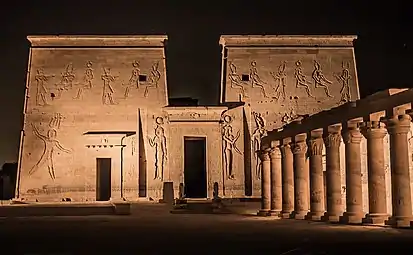The Egypt Portal
Egypt (Arabic: مصر Miṣr [mesˁr], Egyptian Arabic pronunciation: [mɑsˤr]), officially the Arab Republic of Egypt, is a transcontinental country spanning the northeast corner of Africa and the Sinai Peninsula in the southwest corner of Asia. It is bordered by the Mediterranean Sea to the north, the Gaza Strip of Palestine and Israel to the northeast, the Red Sea to the east, Sudan to the south, and Libya to the west. The Gulf of Aqaba in the northeast separates Egypt from Jordan and Saudi Arabia. Cairo is the capital and largest city of Egypt, while Alexandria, the second-largest city, is an important industrial and tourist hub at the Mediterranean coast. At approximately 100 million inhabitants, Egypt is the 14th-most populated country in the world, and the third-most populated in Africa, behind Nigeria and Ethiopia. Egypt has one of the longest histories of any country, tracing its heritage along the Nile Delta back to the 6th–4th millennia BCE. Considered a cradle of civilisation, Ancient Egypt saw some of the earliest developments of writing, agriculture, urbanisation, organised religion and central government. Egypt's long and rich cultural heritage is an integral part of its national identity, which reflects its unique transcontinental location being simultaneously Mediterranean, Middle Eastern and North African. Egypt was an early and important centre of Christianity, but was largely Islamised in the seventh century. Modern Egypt dates back to 1922, when it gained independence from the British Empire as a monarchy. Following the 1952 revolution, Egypt declared itself a republic, and in 1958 it merged with Syria to form the United Arab Republic, which dissolved in 1961. Throughout the second half of the 20th century, Egypt endured social and religious strife and political instability, fighting several armed conflicts with Israel in 1948, 1956, 1967 and 1973, and occupying the Gaza Strip intermittently until 1967. In 1978, Egypt signed the Camp David Accords, officially withdrawing from the Gaza Strip and recognising Israel. After the Arab Spring, which led to the 2011 Egyptian revolution and overthrow of Hosni Mubarak, the country faced a protracted period of political unrest, during which Mohammed Morsi was overthrown in the 2013 Egyptian coup d'état. Egypt is considered to be a regional power in North Africa, the Middle East and the Muslim world, and a middle power worldwide. It is a developing country having a diversified economy, which is the third-largest in Africa, the 38th-largest economy by nominal GDP and 127th by nominal GDP per capita. Egypt is a founding member of the United Nations, the Non-Aligned Movement, the Arab League, the African Union, Organisation of Islamic Cooperation, World Youth Forum, and a member of BRICS. (Full article...) Selected article -The Battle of Fort Lahtzanit took place on October 6, 1973, between the Egyptian Army and the Israel Defense Forces (IDF). Part of the Egyptian-initiated Operation Badr, the battle was one of the first of the Yom Kippur War, fought in and around Fort Lahtzanit, a fortification of the Bar Lev Line, located 19 kilometres (12 mi) south of Port Fouad in the Sinai Peninsula. Commencing the battle with an artillery barrage against the fort, the Egyptians surrounded and isolated the fort prior to assaulting it. Firing ramps intended for Israeli tanks were occupied by Egyptian infantry, who defeated several Israeli attempts to reinforce the fort with armor. The Egyptians managed to breach the defenses and swiftly capture the fort, and proceeded to clear the bunkers, utilizing flamethrower teams. By nighttime, the fort was completely under Egyptian control. (Full article...)General imagesThe following are images from various Egypt-related articles on Wikipedia.
Did you know (auto-generated) -
Selected biography -An-Nasir Shihab ad-Din Ahmad ibn Muhammad ibn Qalawun, better known as an-Nasir Ahmad, (1316 – 16 July 1344) was the Bahri Mamluk sultan of Egypt, ruling from January to June 1342. A son of Sultan an-Nasir Muhammad, he became embroiled in the volatile succession process following his father's death in 1341. An-Nasir Ahmad lived much of his life in the desert fortress of al-Karak in Transjordan and was reluctant to assume the sultanate in Cairo, preferring al-Karak, where he was closely allied with the inhabitants of the city and the Bedouin tribes in its vicinity. His Syrian partisans, emirs Tashtamur and Qutlubugha al-Fakhri, successfully maneuvered to bring Syria under an-Nasir Ahmad's official control, while sympathetic emirs in Egypt were able to oust the Mamluk strongman Emir Qawsun and his puppet sultan, the five-year-old half-brother of an-Nasir Ahmad, al-Ashraf Kujuk. An-Nasir Ahmad eventually assumed the sultanate after frequently delaying his departure to Egypt. An-Nasir Ahmad was known to be a seclusive sultan, surrounding himself with his coterie of supporters from al-Karak, rarely making direct contact with the Mamluk emirs of Egypt and avoiding the public view. Two months into his reign, he relocated to al-Karak with substantial sums from the treasury and several horses and senior administrative officials. He ruled from the desert fortress, leaving a deputy, Emir Aqsunqur al-Salari, to oversee affairs in Egypt on his behalf. His unorthodox rule, alleged frivolity, and his execution of loyal partisans, namely Tashtamur and Qutlubugha, led to an-Nasir Ahmad being deposed from the sultanate by his half-brother, as-Salih Isma'il. He remained in the fortress of al-Karak, which the Mamluks besieged at least seven times, until being captured in July 1344. He was killed later that month on the orders of as-Salih Isma'il. (Full article...)Selected cuisines, dishes and foods -.jpg.webp) Related portalsWikiProjects
More did you know...
Egypt topicsCategoriesCategory puzzle Select [►] to view subcategories
Egypt Egypt-related lists Buildings and structures in Egypt Egyptian culture Economy of Egypt Education in Egypt Environment of Egypt Geography of Egypt Government of Egypt Health in Egypt History of Egypt Organisations based in Egypt Egyptian people Politics of Egypt Society of Egypt Images of Egypt Egypt stubs New articlesThis list was generated from these rules. Questions and feedback are always welcome! The search is being run daily with the most recent ~14 days of results. Note: Some articles may not be relevant to this project.
Rules | Match log | Results page (for watching) | Last updated: 2024-01-18 20:38 (UTC) Note: The list display can now be customized by each user. See List display personalization for details.
Things you can doHere are some open tasks you can do:
Associated WikimediaThe following Wikimedia Foundation sister projects provide more on this subject:
External mediaMore portalsDiscover Wikipedia using portals
| ||||||||

.svg.png.webp)
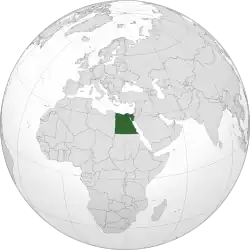

.jpg.webp)










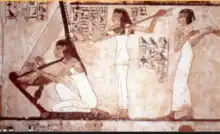

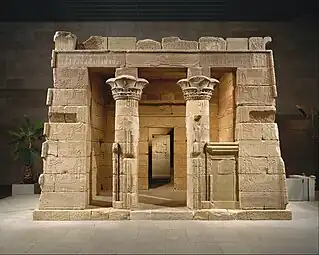
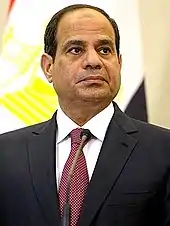











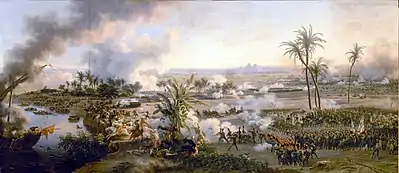
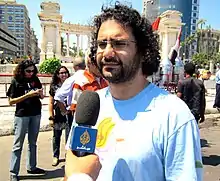


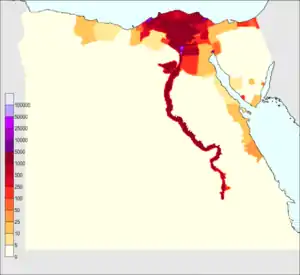













_in_the_Suez_canal_1981.jpg.webp)
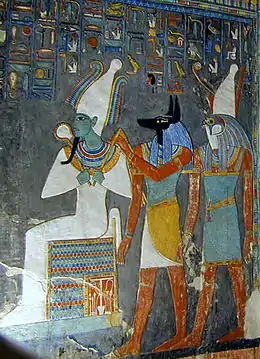






_-_2009.jpg.webp)


.svg.png.webp)

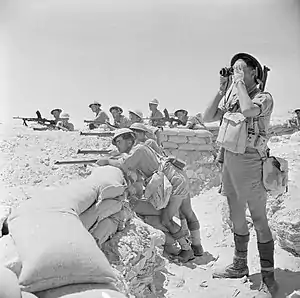
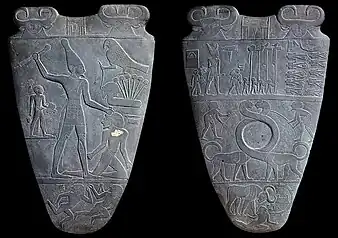




.jpg.webp)
.JPG.webp)
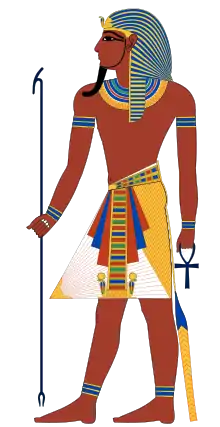











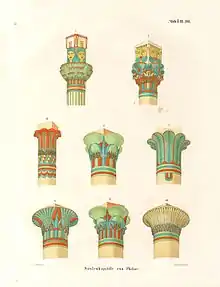




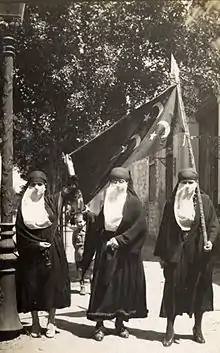



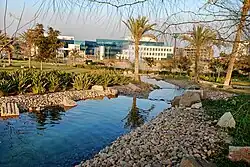

._Temple_dedicated_to_Pa_-_Horakhti.jpg.webp)
